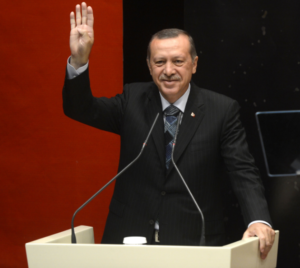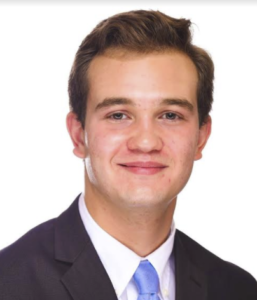Press Around the World Loses Effectiveness
Recent, highly publicized controversies about fake news, alternative facts, and the truthfulness of the media have stood out front and center in U.S. news. Some cite this as an effort by the Trump administration to delegitimize the media. But how much freedom does the press have in the first place?

The U.S. ranks just 41 out of 180 in the Reporters Without Borders (RSF) 2016 World Press Freedom Index. The score stems from what it calls the government’s “war on whistleblowers” as well as some legal protections journalists still lack, such as shield laws, which can protect them in certain legal proceedings.
Other governments that ranked lower on the list, however, present far greater challenges to their presses’ attempts at freedom and independence.
Turkey provides a major example. Ranked at 151, the nation has one of the lowest levels of press freedom in the world. The failed coup this past summer has driven a government crackdown on the media. In an open letter to German Chancellor Angela Merkel, the Committee to Protect Journalist (CPJ) overviews a host of abuses by the Turkish government, including arbitrary imprisonment and the unilateral closing of media outlets. As The New York Times Editorial Board notes, “Although the attempted overthrow was a legitimate threat, Mr. Erdogan has exploited the episode to cement his control. He has declared a state of emergency that greatly expands his executive powers,” which he has used to jail those he has deemed dangerous.
Other nations that rank even lower in press freedom include Cuba, Saudi Arabia, and China, all countries run by regimes characterized by a degree of authoritarianism. What does this correlation reveal about the power of the press?
The press aims to defend the public interest by preserving access to information. Without an institution actively seeking truth and disseminating facts to help inform the public, citizens find it difficult to understand the actions of their government—and hold it accountable.
Authoritarian-minded governments likely perceive an inverse relationship between press freedom and their own power. The greater the freedom of an independent press, the more difficulty a government faces in exerting control over society. Thus, it makes sense that authoritarian states and those moving towards authoritarianism seek to consolidate power through media restriction.
For example, Freedom House reports that the “Chinese Central Communist Party maintains direct control over news coverage through its Central Propaganda Department (CPD).” Meanwhile, the government increasingly pressures liberal publications, censors social media and online content, and has jailed approximately 49 journalists.
Similarly, according to Freedom House, Saudi Arabia continues its particularly harsh treatment of journalists who express reformist or anti-government views. This can include not only jail time but also travel bans and flogging.
On a different note, democracies like the U.S. may face fewer press access issues. Instead, they see an erosion of impartiality and public confidence. In addition, manipulation of this phenomenon by powerful individuals occurs on both sides of the aisle.
Some argue that cozy ties between the media and senior staff members pose unique challenges. Bias could emerge in positively-skewed reporting based upon close personal relationships or even in an effort to gain future access to the newsmaker.
Thus, we see two divergent issues. One in which governments in many parts of the world continue to restrict the free press: in 2015 global press freedom hit its lowest level of the previous 12 years.
The second, in which nations with relatively high levels of press freedom face growing concerns over bias. This includes the echo chamber phenomenon where individuals simply accept their own opinions while rejecting opposition as improperly partial.
The first, restricted environment results in no information. The second, biased environment results in mountains of information which can confuse and introduce inaccuracy. Activists must work towards expanding press freedom within repressive regimes as a means of accelerating social change. Meanwhile, in countries with high press freedom, we must hold journalists accountable for objectivity and truth. The alternative means slipping into a solely biased media environment. Arguably, a complete lack of impartiality negates the power of the freedom of the press in the first place. Unfortunately, a completely subjective press may share many of the same impacts as one which lacks freedom.

Alex Potcovaru is a junior in the School of Foreign Service from Reading, PA (it's RED-ING) studying International Politics. He's pursuing an International Security concentration and has a particular interest in law and religion. You can catch him on campus pretending to be a lawyer in Mock Trial and trying to be somewhat reasonable about his coffee intake.
